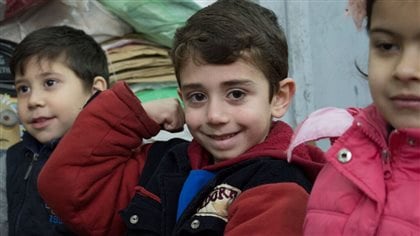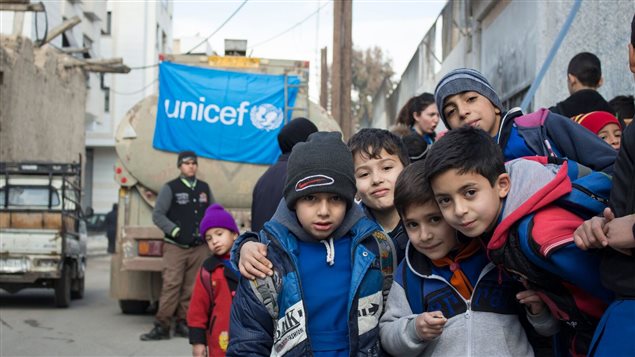UNICEF Canada is joining the call to help the people in Syria’s capital, Damascus, where 70 per cent of the 5.5 million citizens have been without water for three weeks now.
Two main water sources for the Damascus area – Wadi Barada and Ain-el-Fijah – are out of action because of “deliberate targeting”, the U.N. said on December 29, 2016.
“I go with my older cousins and we each carry two jerry cans.”
A spokesperson has said sabotaging civilian water supplies constitutes a war crime.
Rebel forces are said to have contaminated the Al-Fija spring, northwest of the city, with diesel oil. Attempts to repair the spring have met with outbreaks of violence amid attempts at a ceasefire.
Shushan Mebrahtu, a UNICEF Communications Specialist in Damascus, said the organisation has been working to assure that children are taken care of and can remain in school.
ListenUNICEF has fixed 120 wells so far and has trucked water to 89 schools which safeguards approximately 30,000 children.

But the concern over water-born disease continues as desperate people buy bulk water with no guarantee of its safety.
Children are also at risk in the freezing temperatures, walking as much an hour to local mosques, to line up and wait for water rations.
“I go with my older cousins and we each carry two jerry cans from the mosque back to our families. They help me carry mine when I get tired,” says 6 year-old Anan.
Reuters is now reporting a deal has been reached to allow technicians access to the Al-Fija site to repair the damage.
The report could not yet be confirmed with rebel fighters.







For reasons beyond our control, and for an undetermined period of time, our comment section is now closed. However, our social networks remain open to your contributions.